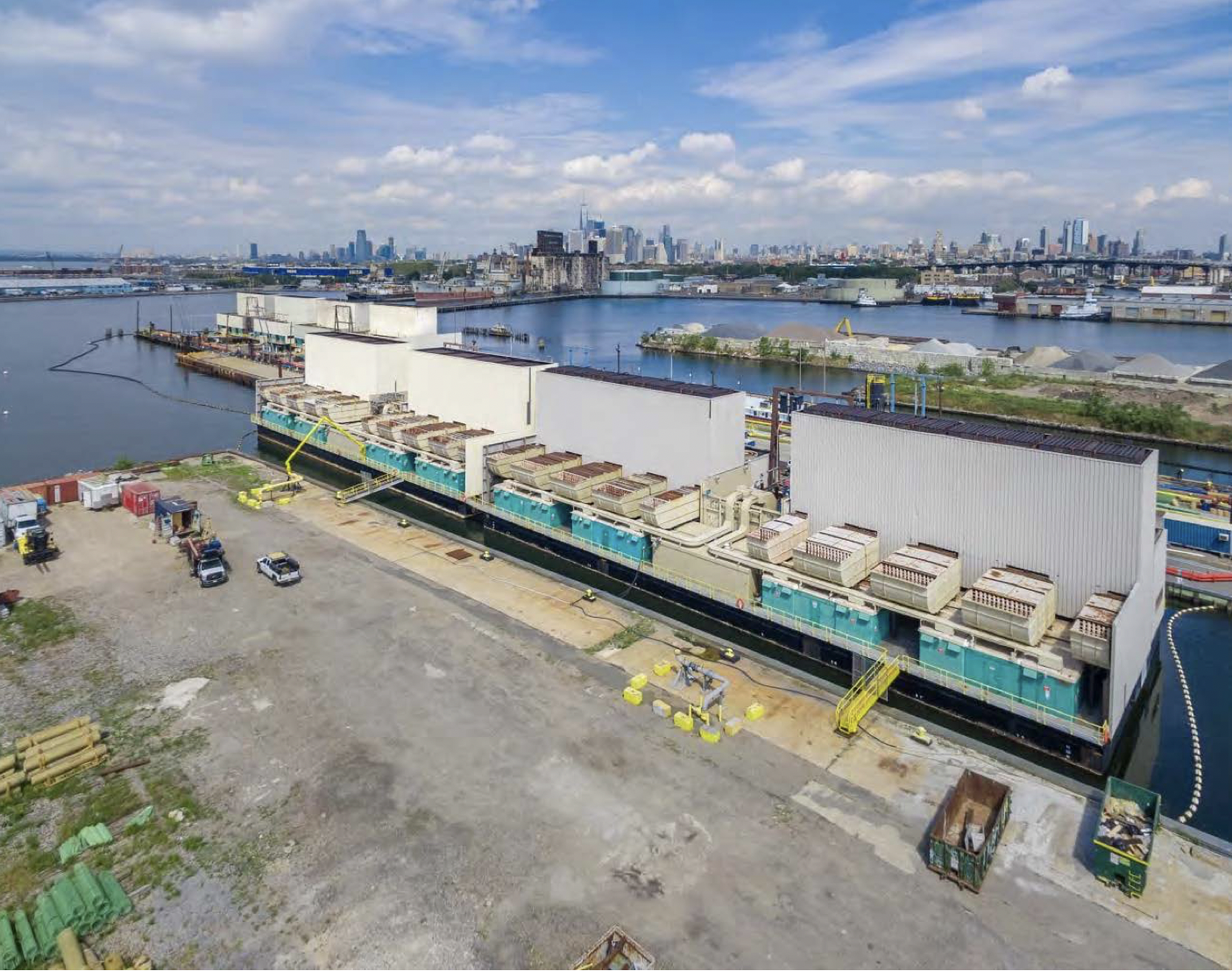Mayor de Blasio Joins Opposition to Gowanus Peaker Power Plant


Mayor Bill de Blasio has joined climate activists and several lawmakers in announcing his opposition to the controversial replacement of two peaker power plants using fracked gas, including one in Gowanus.
The Astoria Generating Company (AGC), which operates two power plants located on six barges at the entrance to the Gowanus Canal, wants to replace its aging electric generating stations with new units that would make use of fracked gas.
AGC says the proposal, which requires approval from a state siting board controlled by Governor Andrew Cuomo, will make its energy generation cleaner and more efficient. The state is also considering another, similar proposal from NRG Energy to build a new peaker plant in Astoria, Queens.
But de Blasio says he’s against both projects, arguing they will prolong the city’s reliance on fossil fuels instead of facilitating a transition to renewable energy.
“They are plants that would take us backwards, not forwards,” the mayor said at a press event this morning. “They are plants that would unfortunately place us in that past of fossil fuel dependency and hold us back. They should not be allowed to go forward. And we’ve got to understand, this is about fighting climate change. This is also about climate justice.”
Peaker plants like the ones in Gowanus and Astoria are activated on days where the city’s power grid needs extra energy, usually on hot summer days when many AC units are running. The peaker plants help prevent the grid from overloading, but they also emit massive amounts of carbon dioxide and nitrogen oxide, and many are located in low-income neighborhoods.
AGC currently operates two such plants: the four-barge Gowanus Generating Station and the two-barge Narrows Generating Station. Under its current proposal, AGC would replace the units on two Gowanus barges, and then retire the remaining power barges, reducing the total number of barges from six to two. The project would cut the total megawatts produced by the facility in half.
AGC has framed the proposal as a necessary if temporary shoring-up of New York’s power grid as the city transitions to renewable energy. They argue the revamped infrastructure will reduce emissions and support expanded renewable energy production and transmission and distribution in the future. And if the barges are eventually phased out entirely, their website says, “they can simply be removed with little effort.”
But environmental groups and some local lawmakers have criticized the plan as perpetuating fossil fuel dependency and condemning the nearby Gowanus and Sunset Park neighborhoods to decades of pollution.
“To avoid climate catastrophe, we must end the era of fossil fuels in New York City, and that starts with rejecting new fossil fuel infrastructure like the Gowanus and Astoria power plants,” said Laura Shindell, a New York organizer with the organization Food & Water Watch. “Governor Cuomo must join the Mayor in standing up for public health and reject these dirty proposals and all fracked gas infrastructure,”
AGC did not respond to a request for comment from Bklyner. AGC submitted a scoping statement for the project to the state in May 2019, though a full Article 10 application has not yet been filed.
The state’s Department of Environmental Conservation told Bklyner in a statement that it subjects all applications for environmental permits “to a transparent and rigorous review process that ensures public health and the environment are protected and encourages public input,” and that it would undertake “a full environmental review to ensure protection of public health and the environment” before any final decision on the plant is made.
Meanwhile, state officials have made other moves to revamp the polluting peakers. In March, the State Senate voted in favor of a bill called the Pollution Justice Act of 2021, which would require plant operators to replace current systems with clean and renewable energy by a specified date. The bill was introduced by State Senator Jabari Brisport, whose district includes Gowanus.
Separately, the state recently finalized new restrictions that would likely drive some of the most polluting peaker plants out of business. In 2019, the state approved the Climate Leadership and Community Protection Act (CLCPA), which pledges New York to 100% zero-emission electricity by 2040.
[4/20/21 – This story has been updated to add a statement from the state Department of Environmental Conservation.]





